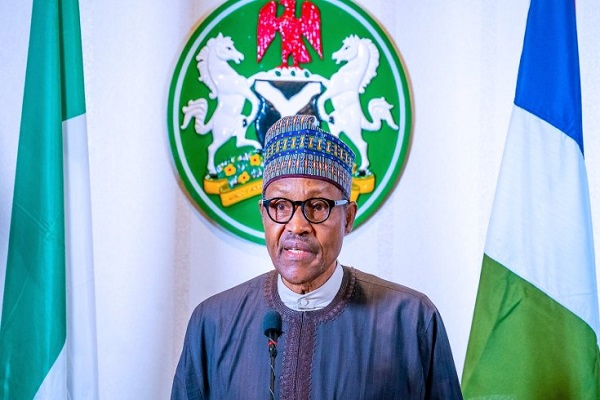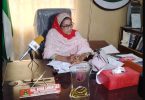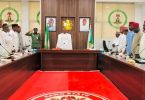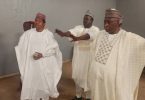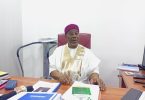
President Muhammadu Buhari who came to power on popular support by Nigerians from all parts of the country, based on his reputation of honesty and uprightness and his track record of excellence in the public service, has indeed justified the trust reposed in his administration by initiating and executing various reforms that cut across all sectors of the national economy.
Under the Buhari administration, Nigerians have witnessed the most ambitious legislative programme in the country’s history. Several landmark Bills have been passed or amended in the last seven years, including the following the Electoral Act Amendment Bill, 2022, the Money Laundering Prevention and Prohibition Bill, 2022, which repeals the Money Laundering Prohibition Act, 2011 as amended, and provides a comprehensive legal and Institutional Framework for the prevention and prohibition of money laundering in Nigeria, while also conferring on the Economic and Financial Crimes Commission, the legal status of the Special Control Unit Against Money Laundering.
Also notable is the Terrorism Prevention and Prohibition Bill, 2022, which repeals the Terrorism Prevention Act, 2011 as amended, as the bill provides for the effective implementation of international instruments on the prevention and combating of terrorism and suppression of the financing of terrorism.
The administration also pushed for the successful passage of the Proceeds of Crime Recovery and Management Bill, 2022, which makes comprehensive provisions for the seizure, confiscation, forfeiture, and management of properties derived from unlawful activity.
Also signed into law were the Deep Offshore and Inland Basin Production Sharing Contracts Act, 1993 Amendment Act, 2019, which will deliver increased revenues to the Federation; the Asset Management Corporation of Nigeria, AMCON Amendment Acts of 2019 and 2021; the Federal Competition and Consumer Protection Commission (FCCPC) Bill which is the first legislation in Nigeria’s history focused on curbing anti-competition practices; the Nigeria Center for Disease Control (NCDC) Establishment Act, 2018, the Mutual Assistance in Criminal Matters Bill which is an Executive Bill signed into law in 2019.
This Bill facilitates the identification, tracing, freezing, restraining, recovery, forfeiture and confiscation of proceeds, property, and other instrumentalities of crime, as well as the prosecution of offenders in criminal cases regardless of where in the world they might be.
These are series of executive bills that were aimed at fast-tracking and reinforcing the Buhari administration’s fight against corruption which have gone a long way in breaking barriers and blocking loopholes that could shield corrupt officials from the grip of the law.
Also passed were the Act establishing the Police Trust Fund, which will significantly improve funding for the Nigeria Police Force (2019); the Nigeria Police Act, 2020; the Repeal and Re-Enactment of the Companies & Allied Matters Act (CAMA), 2020 – the first comprehensive reform since 1990; the Not Too Young to Run Bill (2018) which is a Constitution Amendment Bill to reduce the age of eligibility for running for elective office in Nigeria; the Nigerian Correctional Services Bill, 2019; the Suppression of Piracy and other Maritime Offences Bill, 2019 which is the first anti-piracy legislation in West Africa; A Bill to grant financial autonomy to States’ Houses of Assembly and States’ Judiciary (2018); Banks and Other Financial Institutions Act, 2020, the Finance Act 2019 and 2020 – The Discrimination Against Persons with Disabilities (Prohibition) Act, 2018 and a host of other bills which were aimed at strengthening institutions to guarantee good governance and enhance the welfare and wellbeing of Nigerians.
It is in line with these objectives that the Buhari administration embarked on an ambitious infrastructural development program that cut across roads, rail, power, housing and urban development, education infrastructure, and a host of other interventions aimed at boosting the country’s capacity to support economic activities in all ramifications. Key to the realization of this goal was the setting up of the Infrastructure Corporation of Nigeria (InfraCorp) by President Buhari administration in February 2021, with initial seed Capital of N1 Trillion provided by the Central Bank of Nigeria (CBN), the Nigerian Sovereign Investment Authority, and the Africa Finance Corporation (AFC).
InfraCorp’s goal was to to catalyse and accelerate investment in Nigeria’s infrastructure sector by originating, structuring, executing and managing end-to-end bankable projects in the infrastructure sector. In addition to the 1 trillion Naira equity seed capital, InfraCorp is expected to mobilize an additional 14 trillion Naira of debt capital. Similarly, the administration established the Presidential Infrastructure Development Fund in 2020 with an initial investment of more than $1 Billion.
These among other landmark records, gave rise to rail projects that include the 156km Lagos-Ibadan Standard Gauge Rail line completed and commissioned within a record-time of 4 years; the 8.72km extension to Lagos-Ibadan Rail Line linked to the Lagos Port Complex, completed in 2021; the 186km Abuja-Kaduna Standard Gauge Rail Line, completed and commissioned in 2016; the 327km Itakpe-Warri Standard Gauge Rail completed and commissioned in 2020, 33 years after its construction began. As part of this project, there was the full rehabilitation of the Railway Village, Agbor, as well as construction of a Railway Ancillary Facilities Yard, also in Agbor.
In 2021 the Line commenced commercial freight haulage, transporting pipelines for the Ajaokuta-Kaduna-Kano Gas Pipeline project. The rail transport sector also witnessed for the first time the Commencement of the E-Ticketing system which eased bookings for rail travel. It also increased the monthly generated revenue from less than N200 Million to N400 Million. Similarly, the Abuja Light Rail was completed in 2018 while construction has commenced on the Kaduna-Kano Standard Gauge Rail Line, following the ground-breaking by President Buhari in July 2021.
The president also performed the Ground-breaking for the construction of the 284km Kano-Maradi Standard Gauge Rail line as preliminary works on the project were started last year. President Buhari has also performed the Ground-breaking for the project to revamp the Port Harcourt-Maiduguri Narrow Gauge Rail line as work on the project had commenced earlier this year. So far, 377 Wagons, 64 Coaches, and 21 Locomotives have been purchased for the Standard Gauge network, between 2016 and 2021.
It is worthy of note that the rail network expansion project of the Buhari administration has created more than 11,000 new jobs as more than 100 qualified young Nigerians were awarded full international scholarships for undergraduate/graduate courses in rail engineering and transport in China, from 2018. In addition, dozens of Nigerian Engineers have been trained in maintenance and other sundry aspects as part of measures to make the railway modernization initiative sustainable. Other dteps in this direction include the establishment of a new Transportation University in Daura, Katsina State, and establishment of a new Rail Wagon Assembly Plant in Kajola, Ogun State, both nearing completion of construction.
In the roads sector, the Presidential Infrastructure Development Fund has so far investing over a billion dollars in three flagship projects which are the Lagos-Ibadan Expressway, billed for completion this year, the Second Niger Bridge also targeted for completion later in the year and the Abuja-Kaduna-Zaria-Kano Expressway the first phase of which is scheduled for completion in 2023. A notable move to complement other efforts at building roads infrastructure is the Executive Order #7 of 2019, on the Road Infrastructure Development and Refurbishment Investment Tax Credit Scheme which allows companies that are willing, to spend funds on constructing critical roads, to recover their construction costs by paying taxes, over a period of time.
So far, more than a trillion Naira has been mobilised through this Executive Order, for road projects across all six geopolitical zones of the country, like the Bodo-Bonny in Rivers and Apapa-Oshodi-Oworonshoki-Ojota in Lagos.
Likewise, more than 600 billion Naira worth of Sukuk Bonds were raised since 2017 for more than 40 critical road projects across the six geopolitical zones of the country. The Federal Government has handed over to the benefiting communities 941 km of completed Sukuk road projects connecting 10 states in five geo-political zones of the country.
In the air and seaports sectors, the Buhari administration constructed new Terminals for the Lagos, Abuja, Kano and Port Harcourt International Airports as well as runways for the Abuja and Enugu International Airports.
In 2019, President Buhari approved a special fund of 10 Billion Naira for the reconstruction of the Enugu Airport Runway which was completed and reopened in 2020. The administration has also transformed the nation’s ports with the Lekki deep sea port which will be equipped with world class infrastructure and terminal services, besides six dry ports that include the Kaduna Inland dry port that was launched by President Buhari in 2017.
In the housing sector, the buhari administration through the Federal Ministry of Works and Housing, has completed housing projects in 34 States of the country under the National Housing Programme, with the support of the State governments which provided the land. So far more than 5,000 houses are at various stages of completion, as thousands more are underway.
In the digital economy sector, the administration launched the ‘National Digital Economy Policy and Strategy’ which was backed up with the construction of ICT centers and information technology training units in several tertiary institutions and MDAs with the aim of breeding a workforce that will be ICT-compliant in line with the trend of building knowledge-based economies for global competitiveness.
In the agric sector, of particular note is the Anchor Borrowers Program of the Central Bank of Nigeria which was launched in 2015 and had since then disbursed more than 800 billion Naira to more than 4 million small-holder farmers that deal in 23 different commodities that include Rice, Wheat, Maize, Cotton, Cassava, Poultry, Soybeans, and Groundnut. ver 5 million hectares of farmland have been cultivated under scheme. Other programs include tehe Special-Agro Industrial Processing Zones with an investment of half-a-billion-dollars through a partnership between the federal government, the Africa Development Bank, International Fund for Agricultural Development, IFAD and other partners.
Also worthy of note is the National Livestock Transformation Programme which is an initiative of the federal government designed to Modernise pastoral agriculture and livestock production in Nigeria through the establishment of ranches in order to proffer a lasting solution to recurring clashes between farmers and pastoral communities.
The National Social Investment Program is another landmark scheme by the Muhammadu Buhari administration which is currently the largest of its kind in Africa and one of the largest in the world. The National Social Register of poor and vulnerable Nigerians now has the record of more than 46 million Nigerians from more than 11 million poor and vulnerable households, identified across more than 8,000 wards across the country. Out of this number, close to 2 million poor and vulnerable households are currently benefiting from the Conditional Cash Transfer program, which pays a monthly stipend of N5,000 per household.
Another program under the scheme that has made tremendous impact in the area of education and poverty reduction is the home-grown school feeding program which is being implemented in collaboration with the 36 state governments and the FCT.
The remarkable feats recorded in these and other sectors include healthcare, sports and youth development, oil and gas, solid mineral and mines development, and the multi-sector economic diversification initiatives of the Buhari administration in the last seven years have made it worthwhile to celebrate the administration for its progressive and people-oriented policies.
The far-reaching impacts of these programs and policies have indeed made it evidently clear that the administration has recorded a milestone in delivering dividends of democracy to Nigerians.
Bello Wakili

